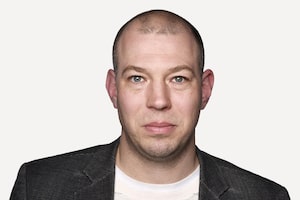Former prime minister Brian Mulroney with his daughter Caroline at the Spirit of Hope benefit in Toronto.
Former prime minister Brian Mulroney accepted cash-stuffed envelopes from Karlheinz Schreiber "as part of a scheme" to conceal the payments, a commission of inquiry has found. But after spending at least $14-million, listening to 39 days of testimony and reviewing 150,000 pages of evidence, the Oliphant inquiry couldn't say what he did to earn it.
In a sometimes scathing examination of Mr. Mulroney's acceptance of at least $225,000 in cash from the German-born, and now incarcerated, lobbyist, Mr. Justice Jeffrey Oliphant, the inquiry's chair, repeatedly called Mr. Mulroney's actions "inappropriate." He described his own "skepticism" of the former prime minister's explanation about the work he performed for the money, and called Mr. Mulroney's explanation for his failure to disclose the payments during a court proceeding "patently absurd."
Almost as soon as Judge Oliphant and his legal staff concluded their remarks to the media Monday, calls began for the government to recoup the $2.1-million that the Justice Department agreed to pay Mr. Mulroney's lawyers and public-relations team in 1997 as part of a settlement agreement.
That settlement, made long before the cash payments in hotel rooms were known, was the conclusion to a defamation lawsuit that the former prime minister launched against the government over a letter the RCMP sent to Switzerland. In the letter, the Mounties accused Mr. Mulroney and Mr. Schreiber of defrauding the Canadian government in relation to Air Canada's 1988 purchase of 34 Airbus airplanes, a charge that Mr. Mulroney vigorously denied.
As part of the lawsuit, the former prime minister was questioned about his relationship with Mr. Schreiber by government lawyer Claude-Armand Sheppard. Mr. Mulroney testified then that since leaving office he had met the Bavarian-born lobbyist "once or twice" for a "cup of coffee," and that he wasn't concerned about Mr. Schreiber's business dealings because he "had never had any dealings with him."
Appearing before Judge Oliphant, the former prime minister said he stood by his sworn testimony because he was never directly asked whether he was in a business relationship with Mr. Schreiber.
"For Mr. Mulroney to attempt to justify his failure to make disclosure in those circumstances by asserting that Mr. Sheppard did not ask the correct question is, in my view, patently absurd," Judge Oliphant said in a prepared speech.
In a four-paragraph statement released Monday afternoon, Mr. Mulroney said he was pleased that the judge had favoured some aspects of his account over Mr. Schreiber's version of events. By finding that Mr. Mulroney was hired after he left office to promote Thyssen armoured vehicles to foreign governments, he rejected Mr. Schreiber's claim that the two men agreed to do business while Mr. Mulroney was still prime minister.
Canada's 18th prime minister has declared the affair to be "over."
At a benefit for the Simon Wiesenthal Centre for Holocaust Studies, at which Mr. Mulroney delivered a speech Monday night, he made only one oblique reference to story. He stepped up to the microphone and with a wry smile said, "And how was your day?" The audience greeted him with laughter and applause.
Others may not be so eager to close the book. Pat Martin, a Manitoba New Democrat MP, told reporters: "As far as I'm concerned, he owes us that money." Prodded during Question Period about whether the government would "immediately" launch a lawsuit to recover the $2.1-million, Justice Minister Rob Nicholson said his department was reviewing the recommendations. The judge did not, nor was he asked to, render a verdict on whether the government should ask for its money back.
As for why Mr. Mulroney and Mr. Schreiber sought to cover up their business agreement, the commission's lead lawyer said he was at a loss.
"I can't get into the minds of people except that it's pretty clear for some reason, or their own reasons, they didn't want to document this transaction. Whether it's a sinister reason, whether it's a reason for income taxes, I don't know," said Richard Wolson, who extensively examined both men last year, and who answered questions Monday on behalf of the inquiry.
As for Mr. Mulroney's conduct while in office, Judge Oliphant ruled that he violated the 1985 ethics code for federal politicians by repeatedly agreeing to meet with Mr. Schreiber at the behest of one of his closest friends, Fred Doucet.
Although some criticism has been levied at the commission for not exploring whether the cash payments had anything to do with the secret commissions paid to Mr. Schreiber by Airbus after its deal with Air Canada, the judge defended the inquiry's narrow mandate. "The only way to link Mr. Mulroney to the Airbus matter is to speculate or to endorse the concept of guilt by association," he said.
As for Mr. Schreiber, he was unavailable for comment. He is serving an eight-year sentence in Germany for tax evasion.
In response to a question about whether the government should continue to probe the payments, or try to find the whereabouts of the more than $20-million in secret commissions that were funnelled to Mr. Schreiber by Airbus, Mr. Wolson said he didn't think that was necessary. "At some point in an investigation, and I don't speak on behalf of any particular party, but at some point I think we all have a right as Canadians to have finality."
 Greg McArthur
Greg McArthur